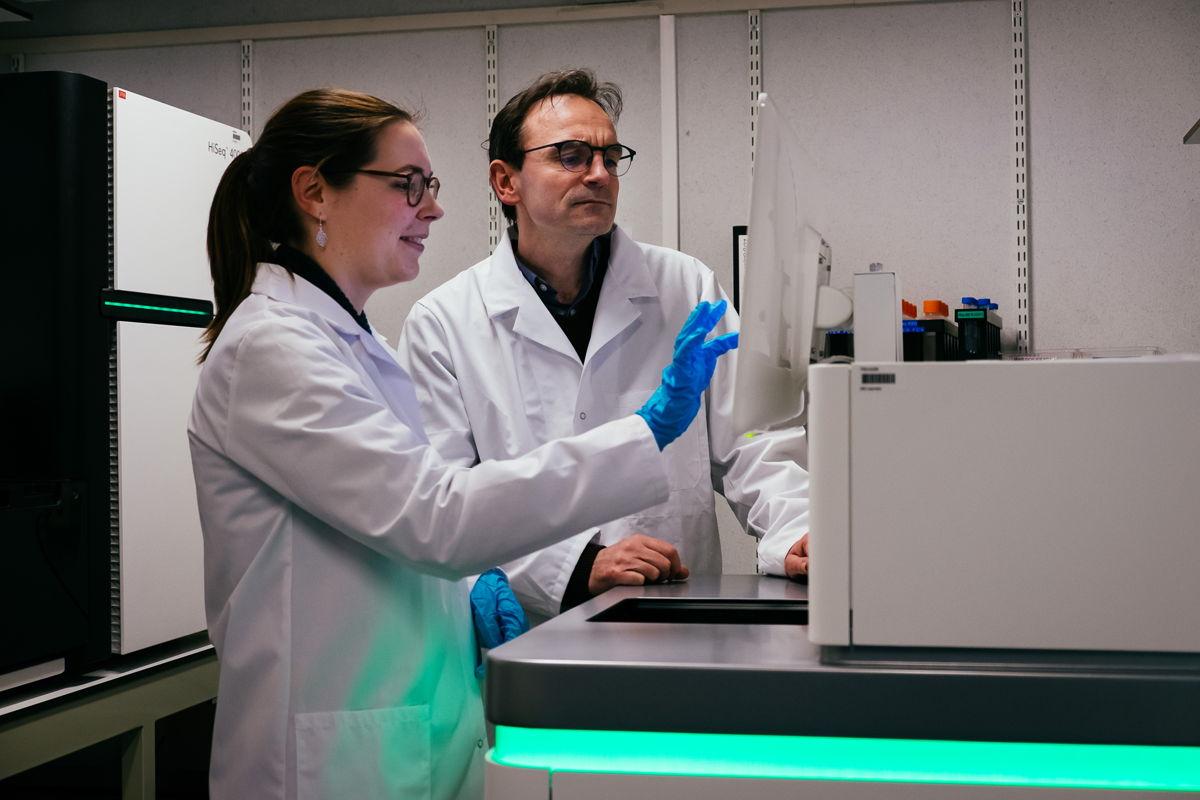The trial will recruit 800 new-born babies and adolescents with an intellectual disability or a developmental disorder to participate in the trial. Half of the patients and their parents will undergo whole genome sequencing, while the other half will undergo the traditional tests for this type of disorders. Today, these tests consist of an analysis of the 2% of the human genome that is already known. With the help of whole genome sequencing, the researchers will be able to see nearly a 100% of the patient’s genome including the areas of the genome we only have limited knowledge of.
Approximately 1% of all babies are born with a rare developmental disorder or an intellectual disability. In half of the cases the cause is as yet unknown.
Prof. dr. Joris Vermeesch of the Leuven Centre for human genetics and the trial’s principal investigator: “We expect to be able to come to more correct diagnoses for at least 10% of the patients. We will probably also find new causes of developmental disorders thanks to whole genome sequencing. A diagnosis often enables doctors to take better decisions on treatment and follow-up of the disorder. What’s more, a diagnosis is also extremely important for parents, as they want to know what their child is up against. Should they want more children, a diagnosis can determine the risk of repetition and it will allow them to take an informed fertility decision.”
With whole genome sequencing, we expect to be able to come to more correct diagnoses for at least 10% of the patients.Prof. Joris Vermeesch, centre for human genetics
Population-wide genomic healthcare
Prof. dr. Joris Vermeesch: “Genome sequencing is important for identifying genetic causes in children with rare developmental disorders. It can sometimes take five to seven years to come to a correct diagnosis for this type of disorders, which often leads to missed opportunities to give the young patient the right treatment. In addition, there is the possibility that the application of whole genome sequencing in patients with developmental disorders could turn out to be the first step to a population-wide genomic healthcare. Genetic analysis will be an important link in implementing personalised medicine.
In addition to the diagnostic added value, the trial wants to measure the economic impact. By also mapping the health economic aspects, the trial will pave the way for a potential systematic implementation of such a genome-wide analysis.
